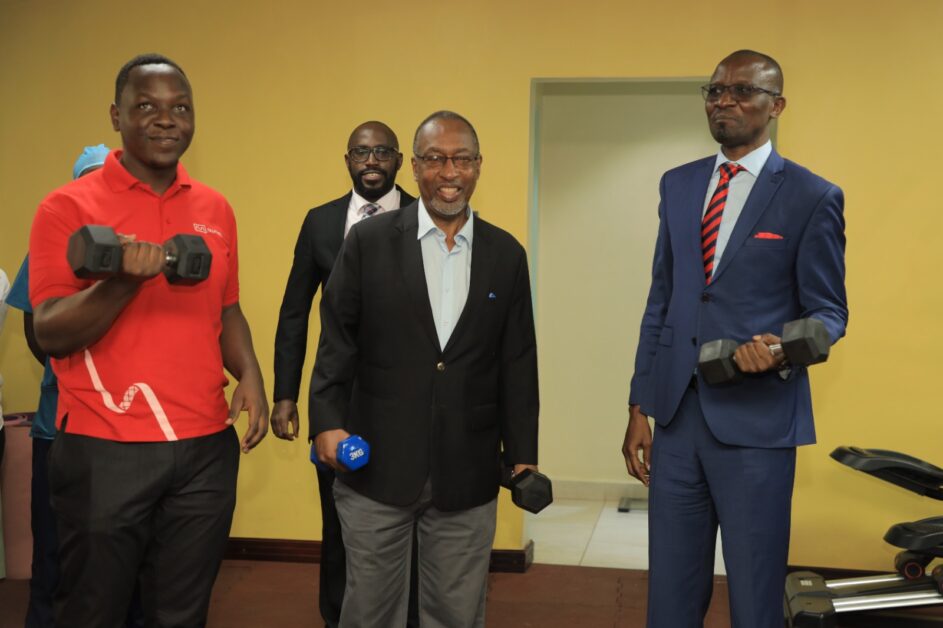The need to meet performance targets and meet customer needs notwithstanding, workplace health and wellness, must never be compromised, as it is necessary for attracting and retaining a healthy workforce, which is by far, the most valuable resource for every organisation, Dr Alan Shonubi, the Uganda Baati Chairman has advised.
“In the fast-paced world of business, health is a precious asset that is usually taken for granted. Employees are consumed by deadlines, targets, and their daily life programs forgetting to prioritise their health,” observed Dr. Shonubi.
He was speaking at the launch of the company’s Health and Wellness Week on June 06th 2023, at the firm’s head office, on Mulwana Road, in the Industrial Area in Kampala. The week is an initiative of the company, that seeks to not only create awareness about the significance of health and wellness to workplaces and communities but also to provide basic health checks to vulnerable members of the community.
“A significant portion of our communities are vulnerable and cannot afford decent health services. As Uganda Baati, we are pleased to recognise the importance of investing in health to improve the overall quality of life,” he said.
During the week, Uganda Baati, partnered with different medical service providers including IDI, Ruby Hospital, Lapaire, Lancet Laboratories, Minet, Malaria Free Uganda, KCCA, C-Care, Uganda Blood Transfusion, and Bhandari Dental Dare to offer free medical services to the communities.
Speaking at the event, George Arodi, the Uganda Baati CEO, emphasised the importance of regular wellness check-ups saying, “As an organisation, we are actively implementing policies and programs that promote a healthy work-life balance, offering wellness resources, and supporting initiatives that will improve the health of our staff and the communities that we serve.”

He said that besides the Health and Wellness Week, his organisation on providing ongoing free health services to communities at its Kampala and Tororo clinics. He also said the company conducts weekly community outreaches to extend healthcare services to vulnerable communities. At the clinics, free immunisation, Hepatitis B vaccinations, malaria testing, and general consultations with the masses are conducted.
Mr. Arodi commended the different medical partners (IDI, Ruby Hospital, Lapaire, Lancet Laboratories, Minet, Malaria Free Uganda, KCCA, C-Care, Uganda Blood Transfusion) for the support and commitment to making the Health and Wellness Week a success.
Nine women are diagnosed with cervical cancer every day
At the event, it was also revealed that nine women are diagnosed with cervical cancer every day according to the World Health Organization, with two human papillomavirus (HPV) types (16 and 18) being responsible for nearly 50% of the high-grade cervical pre-cancers.
Dr. David Kawalya of Lancet Laboratories highlighted that women living with HIV are 6 times more likely to develop cervical cancer compared to women without HIV.
“It is important for all young women to get checked early to curb any early signs of cervical cancer before it’s late. The World Health Organization report indicates that cervical cancer can be comprehensively controlled through primary vaccination against HPV, screening and treatment of pre-cancerous lesions, and if diagnosed, palliative care is advised,” advised, Dr. Kawalya.
According to the Annual health sector performance report 2021/22 by the Ministry of Health, there was an indication to create emergency finance systems for health centres, increase awareness and sensitisation about COVID-19, encourage and educate communities about family planning, increase testing for Hepatitis B and vaccination programs, all while ensuring availability and access to the medical services and supplies.
